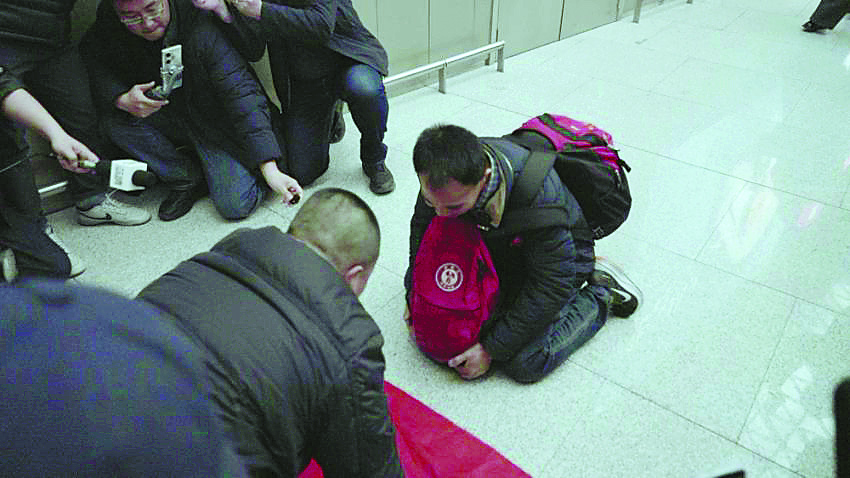Village chief returns ashes to ancestral homelands


One day in 2003, a veteran surnamed Wen, originally from Hunan province, made a request to Liu for him to take his ashes back to his hometown when he dies and bury them in front of his parents' grave, as he wished to fulfill his duty as a son.
"Even now after more than 20 years I still remember his words clearly," Liu said.
In 2003, direct travel routes across the Taiwan Strait hadn't been fully established and there were no high-speed trains. After Wen passed away, Liu departed from Kaohsiung on Dec 31, 2003, passing through Hong Kong, Hunan's Changsha and Changde, and on Jan 1, 2004, he finally delivered the veteran's ashes to his home in the countryside of Taoyuan county for burial.
"A promise is to be kept," he said. From then on for over 20 years Liu has escorted over 300 veterans' ashes back home to the mainland.
At first, Liu only helped veterans from his community whom he knew well personally, but with the spread of the internet, more requests from veterans' relatives from the mainland made his cross-Strait trips more frequent.
On March 12, at the exit of Weifang Railway Station, Ju Zhiliang, 50, finally received the ashes of his grandpa, who had been away from home for 77 years. He buried the ashes shortly before Qingming Festival.
Last year, Ju came across news of Liu escorting the ashes of elderly veterans back to their hometowns on the mainland and was deeply moved. He eventually contacted Liu.
"It was my father's long-held wish for decades. What Chief Liu is doing is deeply moving for those of us with elders residing in Taiwan," Ju said.
Among all the trips, one to Xuzhou, Jiangsu province, brought Liu an unexpected discovery about his own family roots.
While escorting a veteran's ashes home to their relatives on the mainland he was asked about his family name. Liu told the locals it was Pengcheng, to which the local said: "Oh Pengcheng is an old name for Xuzhou".
"As a child, I'd seen the family name plaque... Only then did I realize that my ancestors came from there," Liu said.
"We are born of the same roots from one family. We should stay connected and visit more. It's our shared belief that we must never be separated," he said.




































